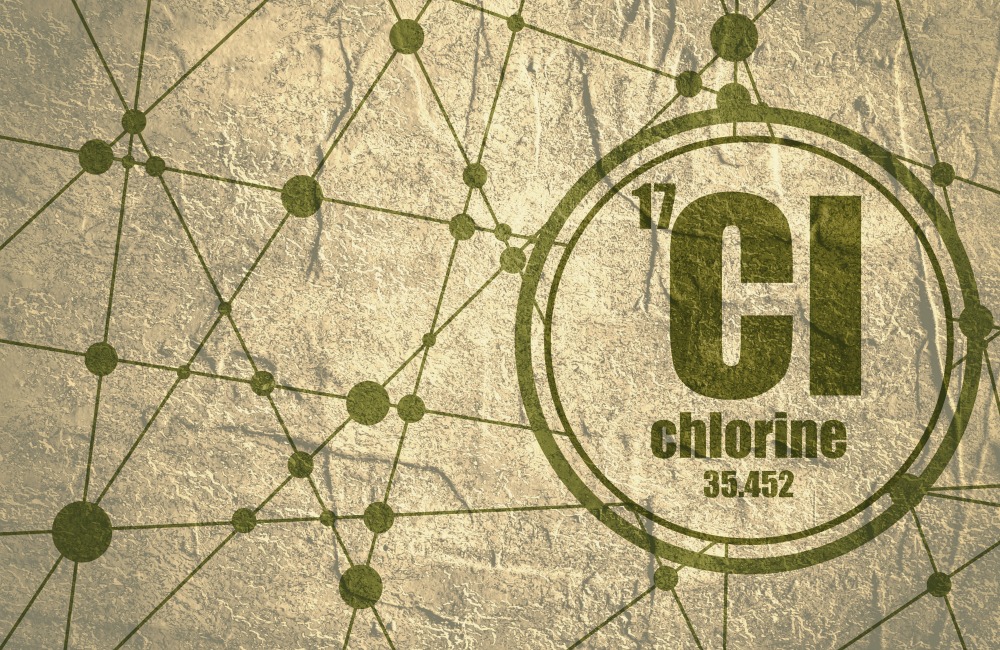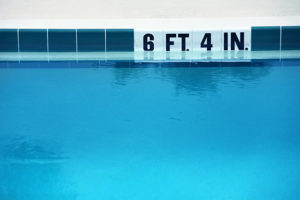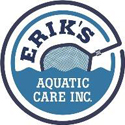Pool Health 101: Understanding Chlorine and Its Strong Odor

If you’re new to pool maintenance, you may not know why you need both a cleaning agent and a stabilizer. You may be asking: why would I need to use so many chemicals, just to keep my pool clean? Won’t a pool be clean enough without stabilization? What about without chlorine? Based on our last blog regarding sanitizing, stabilizing and treatments, we’re bringing you a fresh blog on understanding chlorine and its strong odor.
Chlorine & Stabilizers
To be fair, you’ll need chlorine or a similar sanitizer to prevent bacteria and algae from growing. Why do I need a stabilizer for the chlorine? Good question. A stabilizer’s main purpose is to extend the life of chlorine by protecting it from exposure to sunlight. Ultraviolet rays can destroy the chlorine in your pool. Assuming you have an outdoor pool, it will receive the sun’s UV rays for several hours each day.
Therefore, the longer chlorine is in your pool without a stabilizer, the less effective it becomes. As chlorine works to sanitize your pool, it’s quickly used up. The stabilizer’s job is to make the chlorine you add last as long as possible.
Using The Right Amount And Why
It’s important not to overuse stabilizer as it will significantly reduce the efficacy of your pool’s chlorine. In summary, the chlorine you use doesn’t have to be stabilized, but it will be more effective and last longer if you do stabilize it. You could also go the more simple route and purchase stabilized chlorine for your pool. For pool owners with consistently high chlorine levels, it may be less necessary to use a stabilizer (or stabilized chlorine) in their pools.
Depending how your pool is sanitized, there are a few different stabilizers to choose from. With chlorine, you will almost always use cyanuric acid to stabilize your pool. In most areas, the ideal level is in between 20-40 ppm. In areas with higher sun exposure, we suggest increasing your regular levels to between 40-50 ppm.
Yes, it’s possible to have extra high levels of stabilizer. If you’re north of 150 ppm, it’s very likely your chlorine is no longer working as efficiently as it could. At that point, you might as well not even have any chlorine in your pool. Rectifying this problem can be handled through water replacement and re-balancing your chemicals. After all, you don’t want an algae bloom and added burdens, right?
The Infamous Strong Chlorine Odor
 We’ve all been in or near a pool with the overwhelming scent of chlorine. Most people connect the odor with too much chlorine and irritation to the eyes, skin, and lungs. But … is that odor really chlorine?
We’ve all been in or near a pool with the overwhelming scent of chlorine. Most people connect the odor with too much chlorine and irritation to the eyes, skin, and lungs. But … is that odor really chlorine?
No, the odor is formed from chloramines rather than chlorine. The strong odor is an indication that the pool water hasn’t been treated properly. There’s a small chance the smell is present from recently adding chlorine. More often than not, it’s because there’s a lack of chlorine in the pool.
How Chemicals Are Mixed
Chloramines are created when chlorine combines with body oil, sweat and urine that could be people’s bodies. The smell forms as a result of chlorine mixing with ammonia. What the chlorine smell really means is that the chlorine has done its job and is now “dead.” Not enough chlorine gives bacteria and algae the opportunity to profligate. And now the water is a potential health hazard. Bacteria from algae can cause ear aches, athlete’s foot, and even diarrhea.
When chlorine reacts with ammonia, it produces a dangerous gas. Usually, outdoors pools have the open air to ventilate the fumes. Indoor pools are another story and desperately need to be ventilated upon working with chlorine. If you smell the chlorine odor, you need to correct it. Here’s how …
Curing The Overwhelming Odor Problem
• Shock Your Pool WITH Chlorine – smelling chlorine means it’s most likely time to shock your pool. This will re-balance your chemicals and remove the smell. Shocking your pool will bring the chlorination back up to normalized level. At normal levels, the chlorine is effective again in killing bacteria and other harmful substances.
• Shock Your Pool WITHOUT Chlorine – If you don’t use chlorine, simply shock your pool with a non-chlorine shock treatment. It will do the same thing (releasing the “dead” chlorine from the pool).
• Add A Product That Breaks Down Organic Waste – There are pool products on the market that lessen the burden on your pool’s chlorine. Firstly, they attack and break down the organic waste that might enter your pool. Secondly, those products ensure that fewer Chloramines are created and therefore, less of a strong chlorine scent is produced.
Erik’s Aquatic Care is always here to answer questions you may have as a current or future pool owner. Cheers!


0 Comments